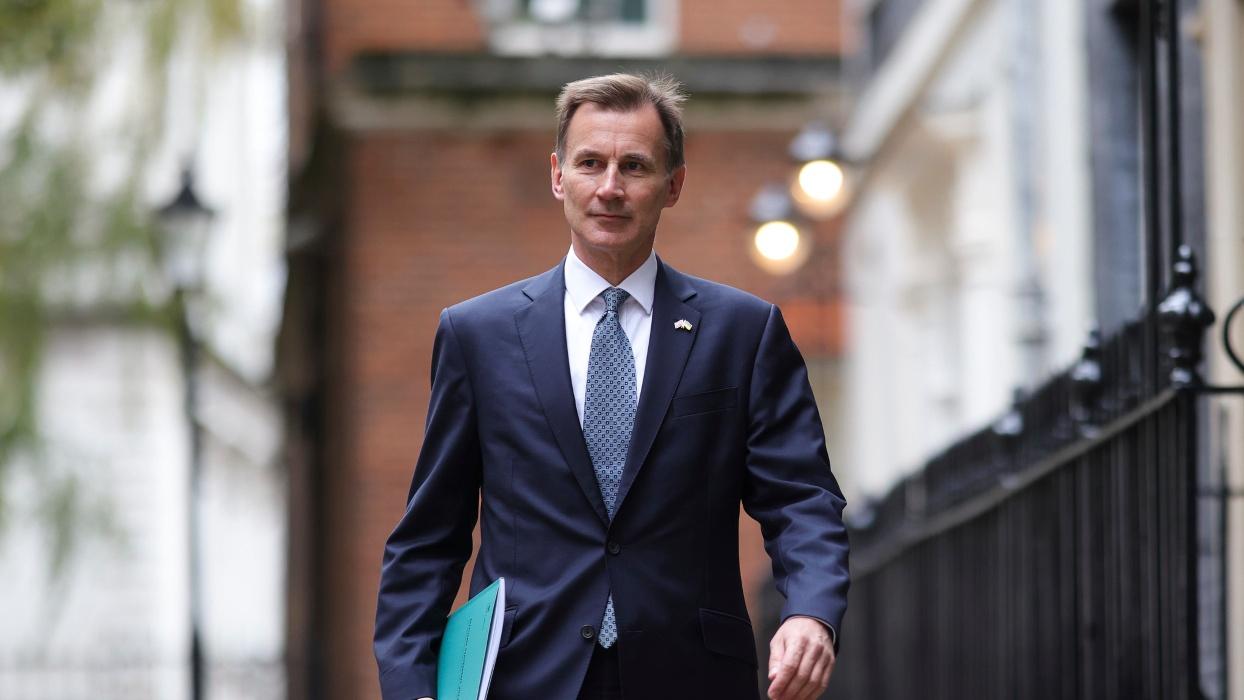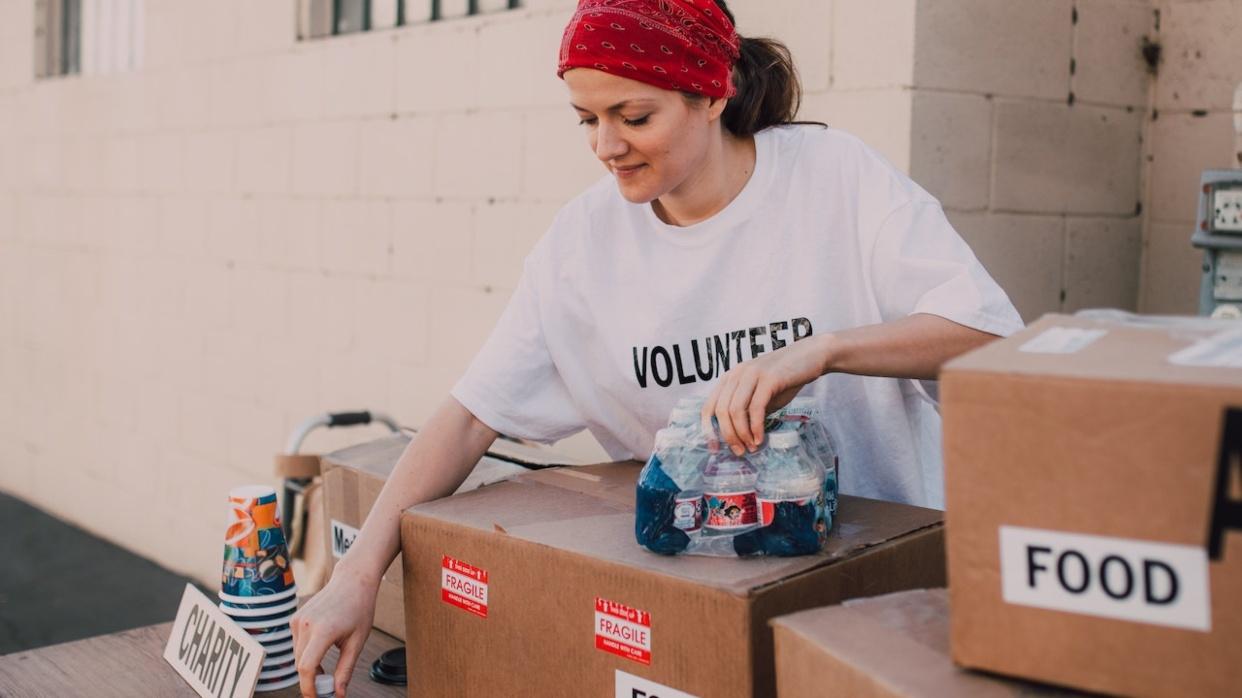As temperatures plunge, leaving up to three million families unable to heat their homes, and whilst demand at food banks continues to outstrip supply, the economic choices made by the chancellor in his November budget are playing out in real time. Katie Pybus argues that measures taken so far do little to back up the government’s rhetoric of compassion.
In the opening lines of the much-awaited and delayed fiscal statement on 17 November 2022, Chancellor Jeremy Hunt spoke about his desire to be compassionate – of Britain as a compassionate nation and the Conservative party as a compassionate government. This was a welcome shift given the months of chaos and uncertainty that had preceded the statement, and which included a toxic debate about the cost-of-living crisis with occasional undertones of “let them eat cake”. Struggling families were told by government ministers that they should simply switch to value brands or get a better job to cope with rising costs, words that were astonishingly out of touch with everyday experiences.
So it was encouraging to hear the chancellor promising that protection for the most vulnerable would be a central priority of the fiscal statement, making this aspect of the budget a key focus of his speech. The support set out included keeping an earlier promise made by Rishi Sunak as chancellor to uprate benefits in line with inflation, additional cost-of-living payments and an extension of the Household Support Fund, alongside a social rent cap and increases to the national living wage. But what did people living on low incomes – those particularly vulnerable to rising energy costs and who are at the sharp end of inflationary food prices – think of the measures announced?
Drawing on lived experience of precarity
The Changing Realities research programme documents the experiences of families living on low incomes whilst navigating the cost-of-living crisis. Working in partnership with parents and carers, and Child Poverty Action Group, a key aim of the research is to develop ideas for policy change. Following the statement, we asked parents and carers taking part in the project for their thoughts about the announcements. For those in work, there were concerns about the rationale for increasing wages at the same time as freezing tax thresholds: “The tax allowance bracket freezes mean any wage increase will disappear into the Tory black hole before they ever reach workers’ bank accounts,” said one participant , named Lili.
Another participant, Beverley, gave her reaction to the uprating of benefits:
“I’m grateful benefits are rising in line with inflation and cost-of-living payments are increasing for disabled people and there will be further payments for lower income folk. For most people, it will at least take some of the sting out of spending which might go some way to remove the fear the cost-of-living crisis has created.
However, it’s a double-edged sword as we aren’t due to receive this financial assistance until spring 2023 at the earliest. In truth, life on a low income means constant compromise as we don’t know what might happen next week never mind next year. The fridge may pack in, or you could be subject to a rent increase, or you could encounter any other unpredictable event.”
While the financial package offered through the budget was a welcome intervention, it is simply not enough for families trying to navigate yet another difficult winter, particularly in light of the additional pressures faced by many as a result of the pandemic. Having already entered the cost-of-living crisis without an adequate safety net following years of below-inflation levels of social security payments, for many low-income families there is little breathing space to cope with additional costs – and for some there is simply none at all.
For many low-income families there is little or no breathing space to cope with additional costs.
Prince sums up the reality of living under this pressure: “It’s too little too late if you ask me, we can’t just survive until April on the support we’re currently getting when everything is rising. How will we cope? I just don’t know.” The lack of recognition of this reality – and the delaying of substantial parts of the financial support that is available until after winter – makes it difficult to see how this was a budget designed with compassion and protection for those most vulnerable to rising costs at its heart.
Treated with suspicion
Along with the increase in social security payments came an additional £280-million worth of funding in the budget to tackle fraud and error in the benefits system. Changing Realities participants wondered whether this represented a return to tired old diatribes about benefit claimants, highlighting the unfairness of subjecting people on low incomes to yet more surveillance, whilst scrutiny of the financial practices of the wealthy remains lacking. Gabbie responded: “There’s the old stereotype raising its ugly head that we in receipt of social security are liars and cheat the system when it is well documented that tax evasion by the wealthy is much more of a problem.”
It is reasonable to question the wisdom of allocating yet more money to tackling fraud and error, when even the Department for Work and Pensions estimates that overpayments only account for around 4 per cent of their total budget, and much of this money is arguably recoupable. Couldn’t this money be more usefully used to implement additional financial support for families in the immediate?
The broader impact of economic policies
Parents and carers commented more broadly on the inherent unfairness of current economic policies, a sentiment that is seemingly echoed by the wider public as energy firms count record profits while workers across the country take to the streets to fight for fairer pay. Less money in pockets means less to spend, threatening the stated aim of longer-term economic growth, and it also means a higher likelihood of the types of health problems that prevent people from working. We are already seeing the very real consequences that the cost-of-living crisis is having on mental health, not to mention the potential health impacts of living in cold homes, without adequate food.
A truly compassionate government would surely do much more to prevent people being cold, hungry and ill now…
As the next few months unfold, so will the direct consequences of the chancellor’s budget. A key question is how it will affect the very people the chancellor has stated he has set out to protect. A truly compassionate government would surely do much more to prevent people being cold, hungry and ill now, and think boldly about the fundamental changes needed to tackle poverty and ensure that everyone has access to a decent standard of living.
The Changing Realities research programme is funded by abdrn Financial Fairness Trust, but the views in this blog are those of the author. Abrdn Financial Fairness Trust funds research, policy work and campaigning activities to tackle financial problems and improve living standards for people on low-to-middle incomes in the UK. It is an independent charitable trust registered in Scotland (SC040877).
All articles posted on this blog give the views of the author(s), and not the position of LSE British Politics and Policy, nor of the London School of Economics and Political Science.
Photo credit: Karolina Grabowska, Pexels.com






